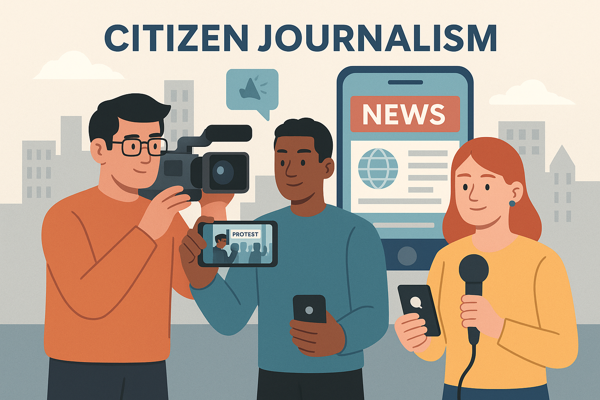Breaking News Culture: The Psychology of Instant Updates
In today’s digital age, the way we consume information has been transformed by breaking news culture. The need to deliver real-time updates on global events has changed not only journalism but also our psychological reactions to information. This article delves into the psychological effects of breaking news, the advantages and drawbacks of instant updates, and ways to adopt healthier news consumption habits in this fast-paced landscape.
The Allure of Breaking News
Breaking news, defined by its urgency and immediacy, taps into our brain’s desire for novelty and relevance. Our reward system releases dopamine when we encounter new information, making breaking news almost addictive. This explains why headlines like “Breaking: Major Event Unfolds” grab our attention so quickly.
Additionally, breaking news satisfies our need for situational awareness. Historically, staying updated on immediate threats or opportunities was vital for survival. Today, this means staying informed about crises, political events, or cultural changes. However, this constant need for updates can create a cycle where the more we consume, the more we crave.
The Psychological Impact of Constant Updates
While breaking news keeps us informed, it also has significant psychological effects:
Heightened Anxiety and Stress
A continuous stream of news alerts, often featuring crises and disasters, can increase stress levels. Known as “headline stress disorder,” this condition leads to higher anxiety and a sense of helplessness. Studies show that repeated exposure to distressing news can trigger the body’s fight-or-flight response, causing chronic stress over time.
Information Overload
Breaking news culture can overwhelm people with too much and sometimes conflicting information. This overload can impair decision-making and cause cognitive fatigue. The struggle to process vast amounts of information efficiently leaves individuals feeling mentally exhausted.
Confirmation Bias and Polarization
In the rush for instant updates, people often seek sources that confirm their preexisting beliefs. This behavior reinforces confirmation bias, deepening societal divides and creating echo chambers. Breaking news, especially on social media, often worsens these effects by spreading emotionally charged content.
Shortened Attention Spans
The fast pace of breaking news can train individuals to value speed over depth. This shift results in shorter attention spans and a preference for quick, sensationalized information over in-depth analysis.
The Role of Social Media
Social media platforms play a crucial role in breaking news culture, allowing real-time updates and citizen journalism. While this democratization of news has its benefits, it also brings challenges such as:
- Misinformation: The speed of updates often compromises accuracy, leading to the rapid spread of rumors and fake news.
- Echo Chambers: Algorithms prioritize content that matches users’ interests, reinforcing existing biases.
- Emotional Manipulation: Headlines and visuals designed for virality often focus on sensationalism, evoking strong emotional reactions.
Benefits of Instant Updates
Despite the challenges, breaking news culture offers notable advantages:
- Increased Awareness: Instant updates ensure that people stay informed about critical events, fostering a more connected and engaged global community.
- Empowerment: Timely information allows individuals to take immediate action during emergencies, such as natural disasters or public health crises.
- Accountability: Real-time reporting can hold powerful entities accountable by exposing wrongdoing and mobilizing public opinion.
In conclusion, while breaking news culture has reshaped information consumption and has psychological implications, it also provides significant benefits. By understanding these effects and adopting healthier consumption habits, we can navigate this rapidly evolving phenomenon more effectively.
Strategies for Healthier News Consumption
To reduce the impact of constant news updates, consider these methods:
Set Boundaries: Designate specific times to check the news and avoid excessive exposure. Disable unnecessary notifications to lower anxiety.
Choose Reliable Sources: Focus on reputable news organizations instead of sensationalist or unverified information, especially on social platforms.
Practice Critical Thinking: Before sharing or reacting to news, assess its accuracy and context. Use trusted sources to verify facts.
Engage in Media Literacy: Learn to distinguish reliable journalism from misinformation. Media literacy helps individuals navigate the media landscape more effectively.
Balance with Positive Content: Offset the negativity of breaking news with positive stories or engaging in activities unrelated to the news.
Conclusion
The culture of breaking news highlights our need for immediate information and relevance, influencing our view of the world. While it provides clear benefits, the constant updates can be mentally taxing. By understanding the psychology behind this and adopting healthier habits, we can approach breaking news in a way that is informative and empowering, rather than overwhelming and divisive.




Post Comment